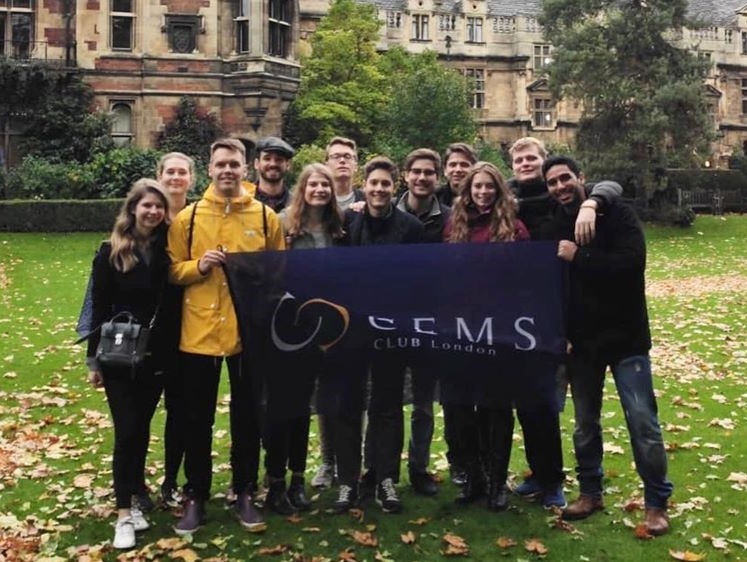My pursuit of the Master’s in Human Resources and Organisations (HRO) at LSE was a journey of gaining immense knowledge, meeting some amazing people and obtaining some invaluable experiences, all revolving around the people profession. After completing my Bachelor’s in Business Administration and 2-3 years of work experience in HR operations, I was a little intimidated, curious and excited to see what LSE had to offer.
As I walked through the doors of the central building to attend my first introductory seminar of the HRO programme, I immediately scanned the room to see my fellow classmates, and after interacting with most of them, I realised that this absolutely inspiring, diverse cohort was one of the best things that this programme had in store for me. The class had a mix of individuals from across the world, from different age groups and also a range of work experiences – some with over 10 years of experience, some with none at all, and even a few from completely different educational or work backgrounds who decided to shift to a career in HR. The entire HRO programme was divided into three streams, and like the majority of the class, I fell into the Human Resources Management stream. My other classmates fell into the International Relations, and Organisational Behaviour streams – all of which had some core classes together and others based on the electives we chose.
My Autumn Term modules looked like this:
- Foundations of Human Resource Management
- Organisational Behaviour
- Business Strategy and Analytics
Whilst my Winter Term looked like this:
- Management of People in Global Companies
People Analytics (involving SPSS and R tools)
One elective module – I chose Leadership in Organisations
These were all taught by extremely knowledgeable and experienced professors who were very approachable and welcoming. The lectures were where they taught the main concepts, introduced theories and explained the models. The seminars, consisting of smaller groups, were more interactive with the discussion of cases and practical scenarios. My personal favourite classes were Business Strategy and Analytics taught by Dr. Xu Li which had interactive lectures and seminars. I also enjoyed the elective module, Leadership in Organisations taught by Professor. Connson Locke, with a Harvard style “lectinar”, filled with interesting cases and group discussions. One thing which stood out for me in all the classes was that each of the professors took great effort in teaching the different concepts related to Human Resources and also tied it closely to their own area of expertise and PHD research – making it even more personal, giving the students an in depth view of a particular concept. I was also astounded by the amount of practical knowledge that I gained unconsciously by attending these classes and doing the readings, which will be applicable when I continue my career as a HR professional. The concepts are well updated with discussions around the emerging trends in human resources, digital transformation and the relevance of AI and its integration into this function of business makes the classes even more exciting.
Another great part of this course is the opportunity of engaging in a LINKS project instead of a traditional dissertation. The LINKS project gives the opportunity to some students, selected through a competitive application process, to contribute to a HR research project sponsored by a company. I got the opportunity to work on a research project with ABB Ltd to help in reaching solutions and recommendations related to a HR problem. The LINKS project brings together the chance to network with employers, work on a practical HR problem and conduct research in an area I’m interested in. This is something I definitely recommend to candidates interested in pursuing the MSc HRO at LSE.
Finally, something also offered by LSE as part of this programme is the continuous career guidance, workshops and sessions preparing us to step out into the corporate world. As someone who wishes to further my journey in human resources and secure a job opportunity in the UK post-studies at LSE, the Careers team provides a number of events and activities particularly tailored for HRO students. For individuals unclear on what path to follow, the careers team have sessions, involving LSE alumni, suited for different career paths within Human Resources itself such as HR generalists, People analytics, Learning and Development, HR business partnering etc.
I would also like to add here that, yes, there are quizzes! Yes, there are formative and summative essay submissions! Yes, there are exams! And, yes, there are a lot of readings to do for seminars! These may get hectic. But these are part and parcel of any good university. As long as your passion to get involved in the people profession shines through, the tiresome bits will be over before you know it. Overall, the MSc in Human Resources and Organisations is definitely invigorating, thought provoking and something I am really fortunate to pursue, ticking all the boxes that I wished this degree to be and more.









Your journey through LSE’s MSc in Human Resources and Organisations sounds truly enriching! From the diverse cohort to practical seminars and engaging professors, your passion for the people profession shines. The LINKS project and career guidance opportunities add immense value. Thanks for sharing your inspiring experience!
Your journey through LSE’s MSc in Human Resources and Organisations sounds truly enriching! From the diverse cohort to practical seminars and engaging professors, your passion for the people profession shines. The LINKS project and career guidance opportunities add immense value. Thanks for sharing your inspiring experience!”
Couldn’t agree more with everything you’ve so thoughtfully shared! Here’s to cherishing all the memories and embracing everything that lies ahead!
Beautifully written ❤️
Sounds like an amazing experience Melisa 😍
Thank you for sharing this. Your experience gives us all a vivid view in the workings of the course and what to expect. I especially liked the LINKS project and think this is a great value add to all students. Your indomitable passion for this field is quite evident and I wish you the very best for your future!
Well penned for aspiring students and detailing of the course and approach taken by LSE is truly commendable. Has made this read an interesting stream to pursue !!
Regarding all that you have so eloquently stated, I couldn’t agree with you more! Cheers to valuing each and every one of the memories and welcome everything that is yet to come!